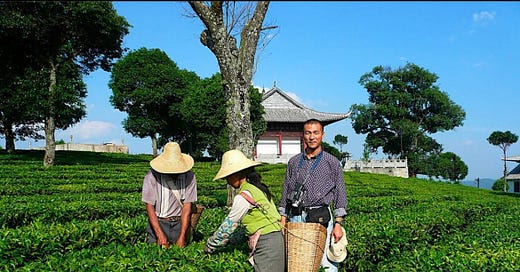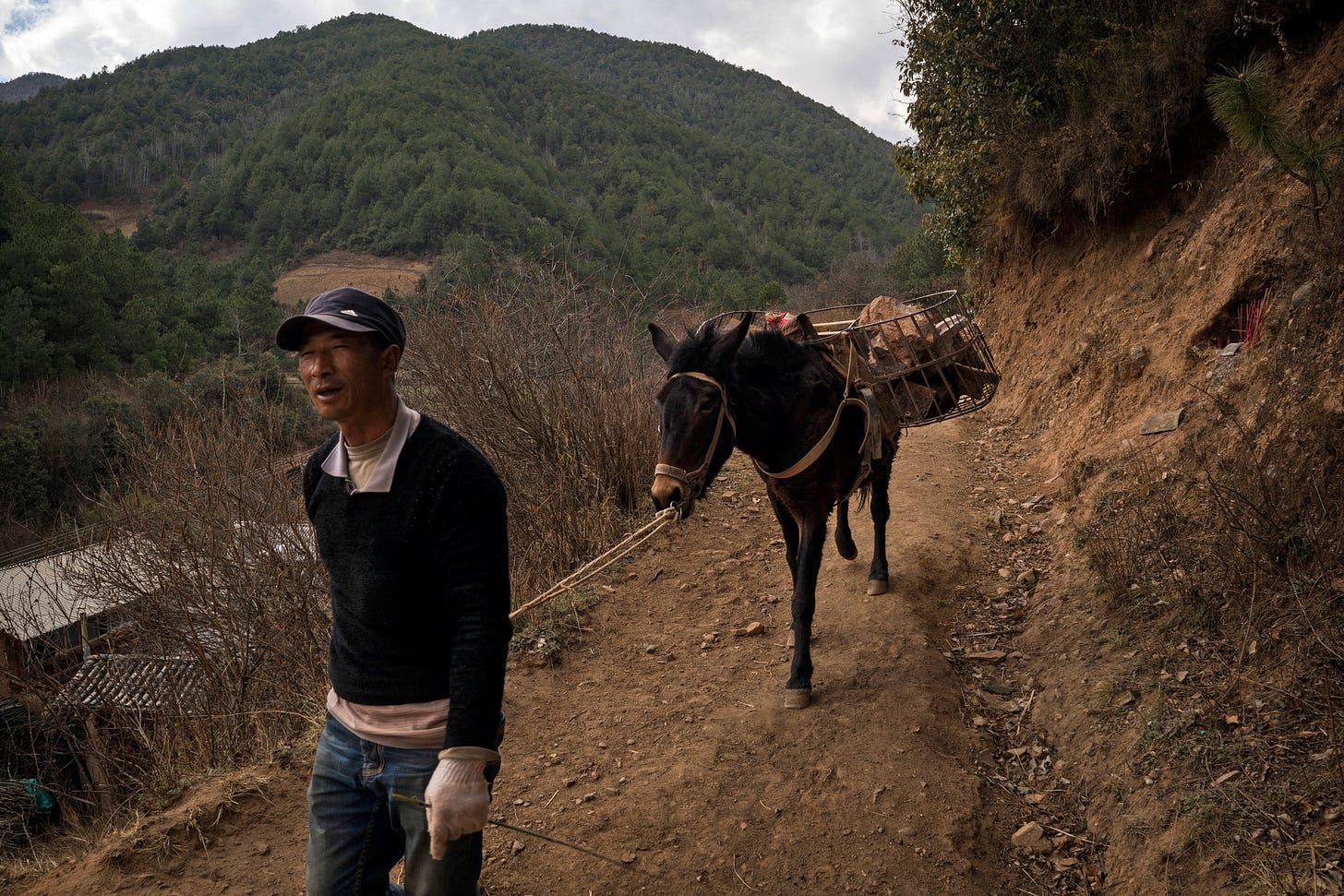Bees are vital to the ecosystem. They help flowers cross-pollinate and diversify their genetics. Diversity in genetics gives a greater chance of survival against attacks from foreign invaders. Pollen is how information travels from one plant to the next, allowing plants to evolve and change over time. The plants that are thriving will more likely pass their pollen down, while the weaker plants may die off before they have the chance to bloom. Pollen has adapted to hitch a ride on bees and other creatures. This is natural selection, and it is what gives plants the power to grow and improve themselves as a whole.
In the same vein, tea has evolved and domesticated with humans. The tea plant has chosen humans to groom and care for them as a species. The benefits have been symbiotic. For tea, humans have propagated the species around the world and insured that they always have land and resources to continue to grow and thrive. For humans, tea has been a comfort and a pleasure in life. It has improved the health and vitality of many people. Tea has also been a keystone in starting global human trade routes. These trade routes have expanded and accelerated the evolution of human civilizations.
But there was more traded than just tea. There was also an exchange of culture, new friendships, and the passing down of old and new ways of living and learning. Tea was an early network much like the internet we have today. It carried stories and ideas across the world. It was the pollen of the people. It helped humans unify on a larger scale than just tribes and villages. Tea is a global bridge and network. Each time we pour a cup of hot tea, we are also participating in the ever-changing and growing bridge of worldwide connection. Tea allows us to enter an invisible gateway into a network of ancient history and lore.






